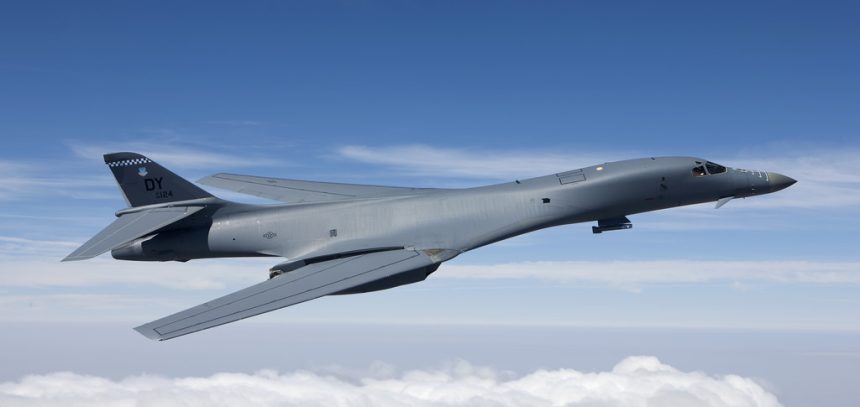Bombers and ISR (Intelligence Surveillance Reconnaissance) aircraft head towards the Pacific.
It looks like the U.S. Air Force is planning to deploy some strategic bombers and surveillance aircraft in Australia to put some pressure on China amid South China Sea tensions.
The South China Sea is the subject of several territorial claims. China claims sovereignty on some island chains and waters that are within the 200 nautical miles exclusive economic zone of Brunei, Malaysia, the Philippines, Taiwan and Vietnam
This year, China has started building an airstrip on the disputed Spratly Islands in the South China Sea waters claimed by the Philippines.
According to FP, the Defense Department’s Assistant Secretary for Asian and Pacific Security Affairs David Shear, during testimony before the Senate Foreign Relations Committee on May 13, said that along with moving U.S. Marines and Army units around the region, the Pentagon will deploy air assets in Australia, “including B-1 bombers and surveillance aircraft.”
The U.S. Air Force ISR aircraft, possibly unmanned Global Hawk drones, will monitor activities around the disputed islands, whereas the “Bone” heavy bombers will serve as a deterrent to challenge Beijing aggressive ownership claims.
U.S. strategic bombers have already been temporarily deployed to Australia, to take part in exercises with the Royal Australian Air Force, in 2012 and at the end of 2014 as a consequence of a joint Force Posture Initiative signed in 2011 to train together to face threats in the Pacific.
Actually, U.S. aircraft don’t really need to deploy to Australia to put pressure on China: Air Force Global Strike Command’s bombers, including B-52s and B-2s, routinely operate from Andersen Air Force Base, in Guam, strategically located 1,800 miles (about 2,900 km) to the east of China. And they can even launch round-trip strike missions from their bases located in the Continental U.S.
According to Xinhuanet, China cautioned the U.S. against taking any actions in the region, urging Washington “not to take any risks or make any provocations so as to maintain regional peace and stability.”
Image credit: Boeing















